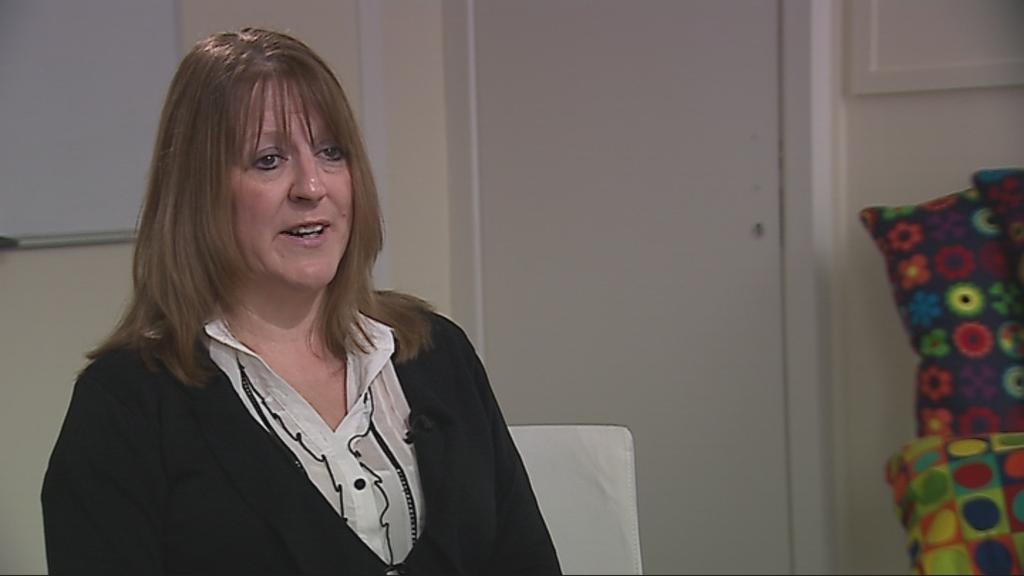Northern Ireland’s family law is stuck in civil service limbo uncertain as to who will eventually adopt it – justice or finance.
Now under the guardianship of the Department of Finance & Personnel (DFP), there are plans to move family law to the control of David Ford at the Department of Justice (DoJ).
And while a major government commission prepares a report into Access to Justice ordered last autumn by the Justice Minister, a Department of Finance review into family law was aborted early due to what was described by the department as a “lack of resources”.
Part of the brief of the Access to Justice review is to examine how to make savings on the high legal aid costs of running the family courts. The bill was nearly £26million in the financial year to April 2011.
The Department of Justice decision to set up the Access to Justice review might also have influenced the Department of Finance decision to stop their review.
But if so, there was no mention of it when a Finance official wrote on September 19 last year to pressure group Real Fathers for Justice.
The official, based in the Civil Law Reform Division of the Department of Finance solicitor’s office, was answering a request for an update on the family law review .
The letter stated: “DFP has no plans to replicate the research which is currently being undertaken in England and Wales. DFP has previously undertaken some preliminary research into child contact arrangements. However, due to a lack of resources that research has not been progressed. As you may know, it has been proposed that responsibility for private family law should transfer from DFP to the Department of Justice. If the transfer does proceed DoJ may seek to re-visit the research on child contact and may determine that a fundamental review is required.”
And the Department of Finance could not tell The Detail how much it had spent on the work done so far.
“This work was undertaken by two members of DFP staff and a consultant employed on a separate piece of work,” it was explained.
“The work consisted meeting with a number of stakeholders and undertaking a preliminary analysis of questionnaires on the topic. Given the nature of this work, and that no-one was tasked to complete it on a full-time basis, it would not be possible to give a figure for the cost.”
Whatever the reason, whatever the cost, Peter Morris, regional co-ordinator for Real Fathers for Justice, said he was disappointed by the Department of Finance decision.
He told The Detail: “The family courts and the family law are in a predicament in Northern Ireland at the moment. We have justice powers transferred to David Ford, the Justice Minister. He’s got criminal law which was transferred to him but unfortunately civil law was not transferred to David Ford’s department. Civil law, that is family law, still stands with the Department of Finance and Personnel.”
Mr Morris said an official at Stormont had informed him “off the record” of the reason for the decision to abandon the family law review.
He said: “We were advised the review was stopped because the departments could not agree on which civil servants should work where.
“Should family law be transferred to the Department of Justice? The Department of Finance and Personnel feel that the people who conducted the first initial review should transfer to the Department of Justice to continue the review and the Department of Justice won’t agree to that.
“That’s the reason we were given by a member of staff, a senior member of staff within Stormont. So at the moment the family law sits within two departments.”
So for the time being family law may not be entirely homeless, but there’s some doubt about where it is going to reside in the future.
But there are indications family law will soon be re-housed at the Department of Justice, not least of which is the remit for the Access to Justice review under way since last September.
The review is headed by Jim Daniell who previously chaired the Review of Criminal Justice in Northern Ireland which flowed from the Good Friday Agreement. Mr Daniell stood down as chairman of the Legal Services Commission to carry out this work.
His mission is to find new ideas and ways of doing things for the minister.
David Ford’s instructions were: “I particularly want the review to consider new ideas; new ways of doing things, thinking that is radical and innovative.
“I want to look at how we help people solve problems and disputes without necessarily bringing those disputes into the courts, and how we can support people through the justice process.
“While we must ensure that access to legal representation will always be available to those who need it, I believe that we should try to find ways of avoiding the costly, adversarial and often stressful experience of a court hearing, in favour of alternative methods of resolving disputes.”
In March, Jim Daniell published his interim report.
In it, under the heading ‘Family and Children,’ he outlines the type of evidence he’s gathered so far and signals the areas he is going to investigate further before his final report is produced at the end of next month.
This is how he opens the section on Family and Children: “Family and Children Order cases accounted for about £22.5million of the civil legal aid spend in 2009/10. We are approaching the review on the basis that most private, as well as public, law cases should if possible remain within the scope of legal aid. However, given the budgetary realities, this is an area where value for money considerations will weigh heavily, while continuing to safeguard the vulnerable.”
A clear indication that ‘value for money’ is key to the outcome of the review.
And figures obtained by The Detail show substantial annual growth in the costs of legal aid in family courts. There are a number of categories where legal aid is available.
The figures given to The Detail by the NI Legal Services Commission cover financial years, April to April, and relate to bills paid. And they feature costs in three categories:
Legal Advice & Assistance – this covers costs for advice on legal issues before a case advances to court and it covers the full gambit of courts from adoption to divorce through to children, domestic violence, family matters, separation/maintenance and custody.
ABWOR (Assistance by Way of Representation)/Children Order – this allows for a solicitor to be engaged for advice and representation in family proceedings court (Magistrates Court) and proceedings in relation to children. Dealing with contact orders, declaration of parentage, investigation into child’s circumstances, residence orders, care orders and separation and maintenance proceedings.
Civil Legal Aid provides legal representation in the County Court and High Court to either bring or defend a case. It covers adoption; children’s orders, divorce/nullity and other matrimonial matters.
The figures supplied by the Legal Services Commission show legal aid costs in family courts over the past three years as:
2008/09 £18.5m
2009/10 £22m
2010/11 £26m
The breakdown of the latest £26m figures are as follows:-
Legal Advice & Assistance £ 267,981
ABWOR/Children Order £ 7,976,731
Civil Legal Aid £17,601,046
TOTAL: £25,845,758
The interim report expresses agreement with views they’ve received that it would be wrong for a wide ranging review of this sort to attempt to make recommendations about fundamental issues such as the role of adversarial processes in public law children cases.
But elsewhere there is a eagerness to explore the use of various strands of mediation in what are collectively termed, ‘alternative dispute resolution’.
Family mediation may feature highly as a means of helping reduce legal costs in family courts. There are many indications of that.
The Law Society’s president Brian Speers told The Detail he had been involved in talks with Justice Minister David Ford about this issue.
He added: “The emphasis is moving a little from litigating and advocating a case in an adversarial way to exploring settlement and there have been some elements combining recently, such as the interest of the Minister of Justice, such as the constraints on the public purse, that will make it more likely that more lawyers will become involved in mediation activity than in court activity.”
Joan Davis is the director of Family Mediation Northern Ireland which finds itself in growing demand and with more and more publicly funded support. Her organisation receives funds from four of the five health trusts and also from the Department of Health.
“It is a very costly and expensive process to go down the legal route and become entrenched in the legal system,” she told The Detail.
“What we’re offering is in some cases a free mediation service because the public funding that we receive is for people pre-court, it’s to prevent people getting into the courts system so if they are separating and they have children they’ll actually access it free.
“Other people who have say adult children or major financial issues that they want to deal with can also come here at a reduced cost so it’s a service that can cover any kind of family dispute and keep people hopefully out of the courts system.”
So as former social worker David Ford waits to take possession of the final Access to Justice report next month, there seems no doubt his department will be busy examining the prospect of taking control of family law with the emphasis on ensuring children are properly protected by whatever means while at the same time achieving substantial cuts in the annual £26m family court legal aid budget.


